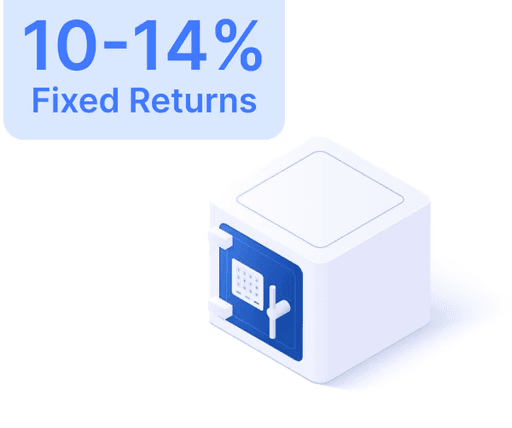
Mutual Funds vs FDs: A Comprehensive Investment Guide

 Jun 17, 2024
Jun 17, 2024 5 Mins
5 MinsWhen it comes to investment options, Fixed Deposits (FDs) and Mutual Funds are among the most popular choices. Mutual funds invest primarily in stocks, bonds, and commodities like gold, offering returns tied to market performance. Conversely, FDs provide a fixed interest rate for a specified duration, available through banks or NBFCs (Non-Banking Financial Companies), whereas mutual funds are distributed by fund houses.
In this guide, we'll dissect the differences between FDs and mutual funds to determine the better investment avenue for your finances.
FDs vs. Mutual Funds: Key Differences
- Returns: FDs ensure a constant interest rate, while mutual funds deliver returns based on market dynamics.
- Risk: FDs pose minimal risk, whereas mutual funds range from low to high risk, contingent on the type.
- Expense: FDs are free from expenses, yet mutual funds incur an expense ratio.
- Liquidity: While FDs have limited liquidity, mutual funds typically offer higher liquidity.
- Investment Amount: FDs specify a minimum investment amount, with often no upper cap, applicable to mutual funds too.
- Tenure: FDs have a defined tenure of 1 to 10 years, unlike mutual funds which usually have no predetermined tenure.
- Taxation: Both FDs and mutual funds are taxable under specific criteria.
- Fund Management: FDs do not require management, whereas mutual funds need a fund manager.
- Flexibility: FDs offer less flexibility due to penalties on premature withdrawal, contrary to mutual funds that provide diverse schemes.
- Regulating Authority: FDs are governed by the Reserve Bank of India (RBI), while mutual funds fall under the purview of the Securities & Exchange Board of India (SEBI).
Fixed Deposits (FDs) are a type of investment product provided by banks and NBFCs where you invest a lump sum for a predetermined period to earn a fixed interest rate. FDs offer a guaranteed return independently of market volatility, making them relatively secure as they yield a fixed return and safeguard the principal amount invested.
Mutual Funds, by contrast, aggregate capital from multiple investors to invest in a mix of stocks, bonds, and other securities. Managed by professional portfolio managers, these funds pursue market-linked returns that hinge on the underlying assets' performance.
While choosing between FDs and mutual funds, it's vital to weigh aspects like returns, risk, expense, liquidity, investment amount, tenure, taxation, fund management, flexibility, and regulating authority. Each investment option has its unique pros and cons, and selecting the right one depends on individual investor goals and preferences.
Disclaimer: The information provided is intended for educational purposes only and should not be used as investment advice. Consulting a financial advisor or investment professional is always recommended prior to making investment decisions.
PFRDA, SWIFT, AUM




